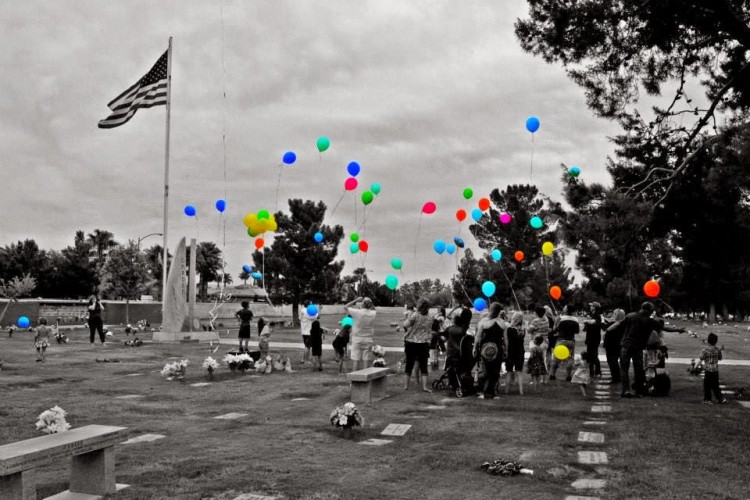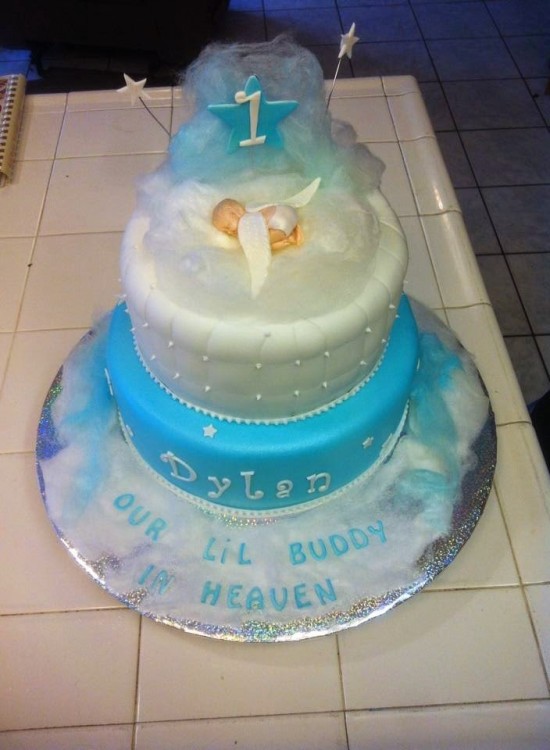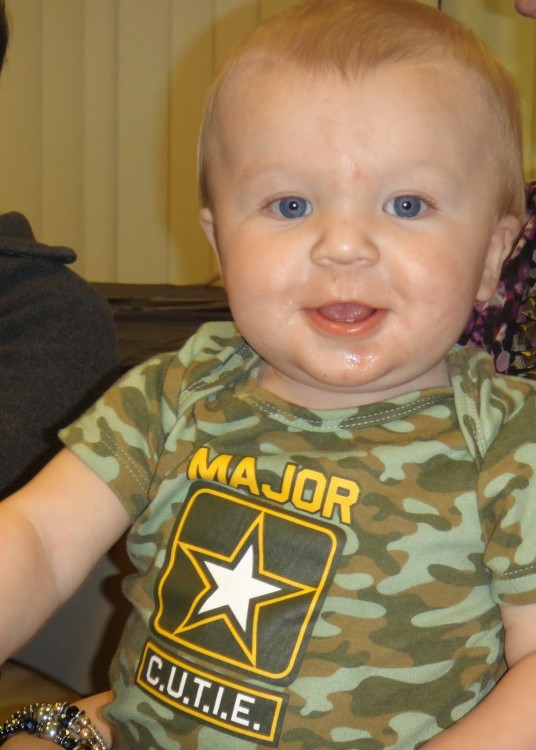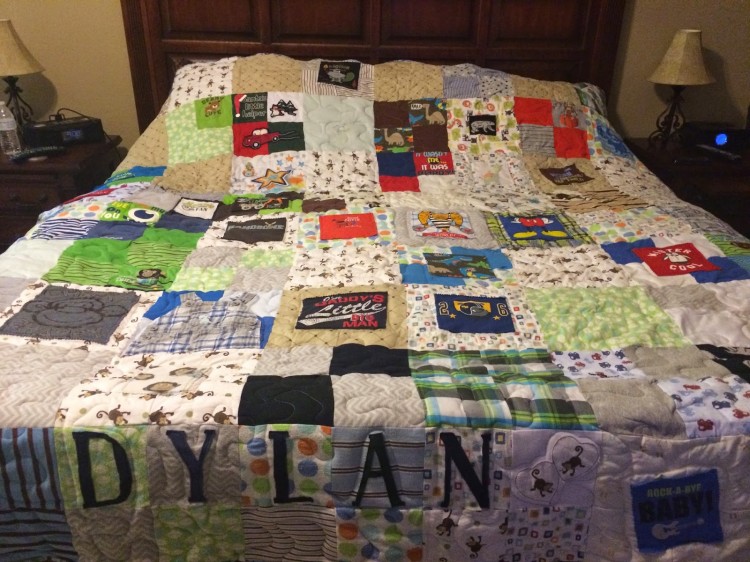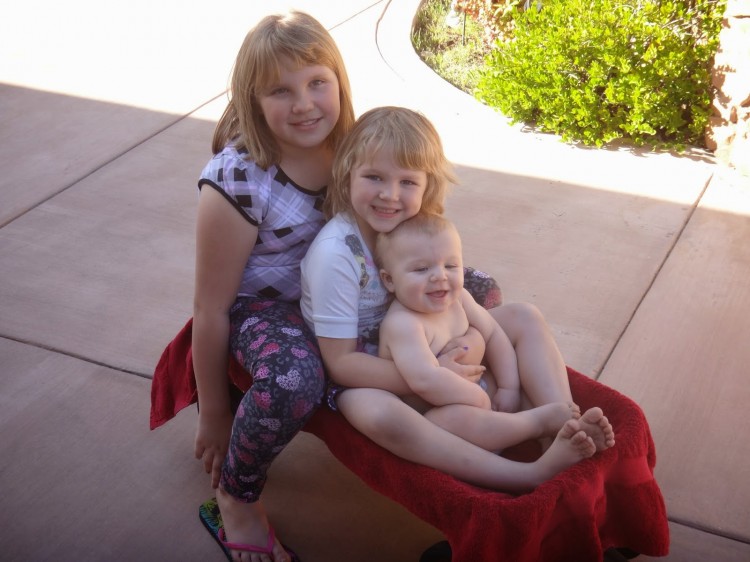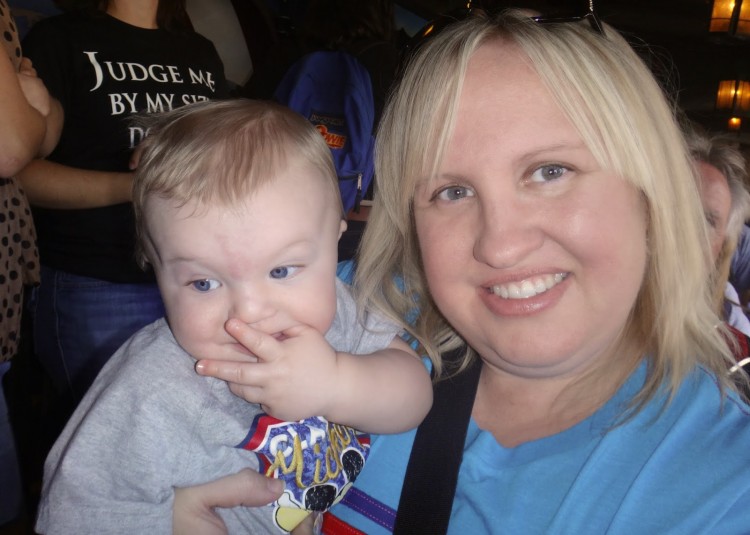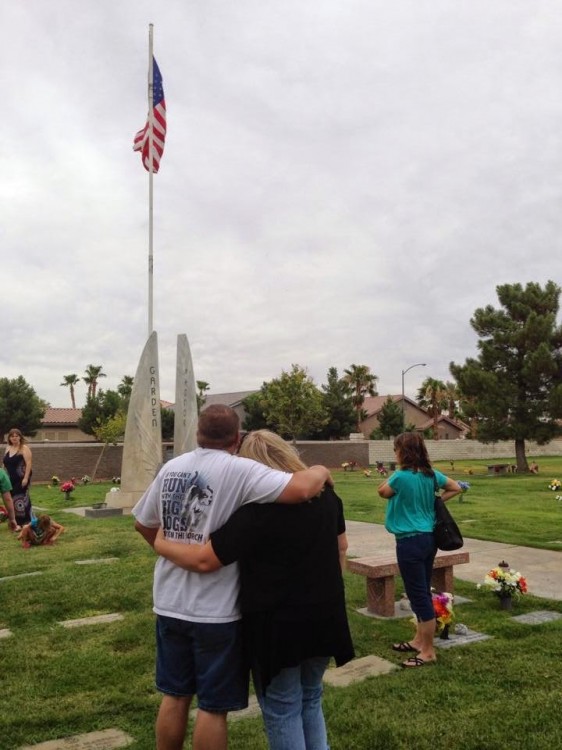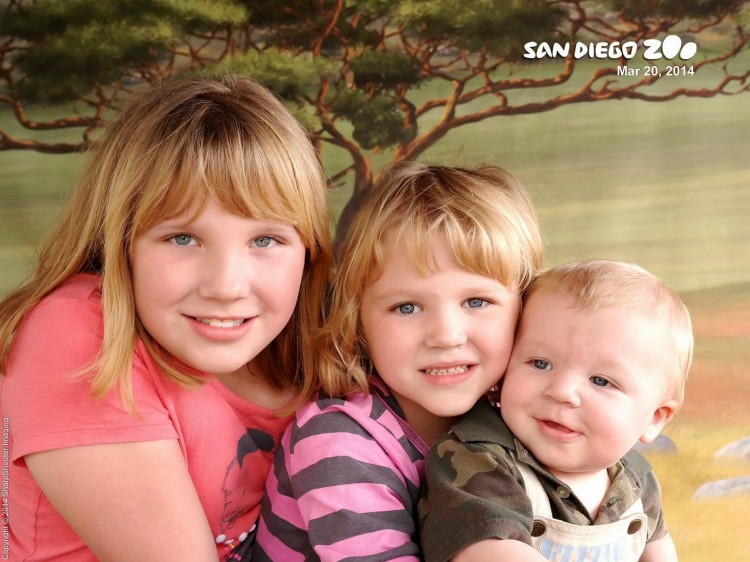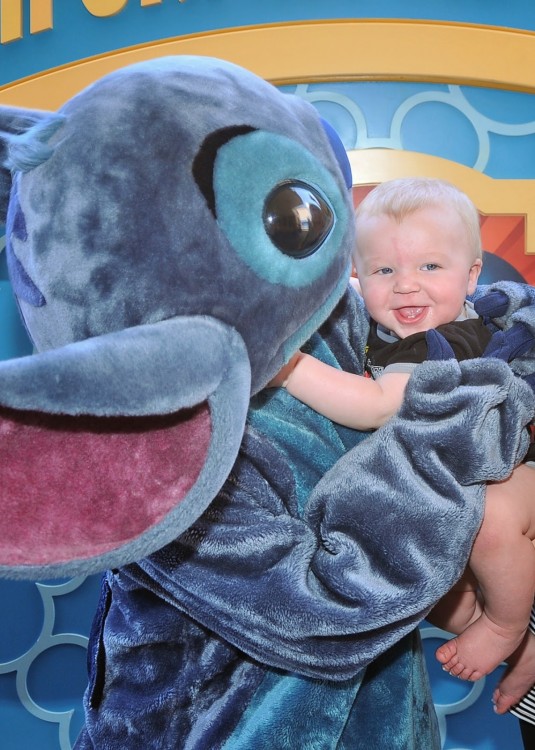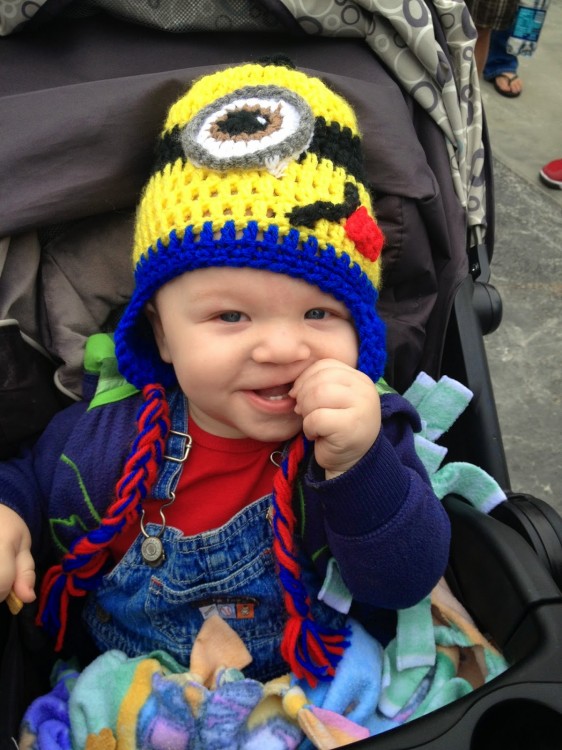 These are 10 fears I’ve faced daily since my son died last March 23, 2014 from sudden infant death syndrome (SIDS) when he was 8 months, 26 days old.
These are 10 fears I’ve faced daily since my son died last March 23, 2014 from sudden infant death syndrome (SIDS) when he was 8 months, 26 days old.
1. People will forget. I’ve talked to several mothers who have lost a child, and all of them were afraid that as time passed, people would forget about their child. People — even close family and friends –get busy with their own lives, and something that’s still painful and excruciating to the nuclear family tends to fall off the radar for everyone else. I know this is something that troubles me often, especially because some people have said that since my son died so young, he hardly had any time to make much of an impact on our lives. What does that mean? That somehow because he passed away as a baby, his life had less meaning than someone who lived to be 10, 20 or 30? Life is life, and my son was here. He lived, he laughed, he loved and he changed my life and the lives of many others. That has to count for something. I feel like it counts for everything. I refuse to let people forget him just because it would be easier than dealing with the pain his memory may bring. Anyone’s lost child deserve to be remembered. That’s why I did a balloon release for my son on his 1st birthday (which he saw from heaven). I wanted everyone to come to his grave and remember him with his family on the day he was given to us.
2. Being judged for the decisions made post-death. Everyone has an opinion about how someone should handle things and the death of a child is no exception. Should he be cremated or buried? “He was a baby, does he really need such an extravagant gravestone?” If it was your child, would you spare any expense? How much would it be worth to have a place to remember your child, a place that’s all their own? “Do you really need to have a cake for his birthday? It’s not like he will be there to blow out the candles?” No, but it’s important for me, my husband and his sisters to be able to remember his birthday because it still is his birthday, and even though he’s in heaven now, we’re still here and we want to celebrate his special day. “Should you have another baby?” I’ve thought long and hard about this quite often in the last month, although I received that question within weeks of my son’s death. At the time, I was unable to even contemplate the idea. I’ve come to the realization that I want another baby very much, but often it’s overshadowed by my worry that people will think that I’m trying to replace my son or fill his void. What they don’t get is that nothing will ever fill the void he left behind. But having another child will give us something to look forward to and a place to put the love we still have to give. Nothing and no one can ever take my son’s place, but it doesn’t mean I don’t have room to love another baby.
3. Becoming a permanently sad person. We’ve all seen them or been told about them. Someone who’s lost someone close to them — often a child — becomes a shell of who they were. They’re unable to enjoy life and avoid certain events because of the painful reminder. They skip out on kindergarten orientation, baby showers, birthdays, Christmas, etc. Everyone whispers about those people: “That’s the woman who lost her baby two years ago, and she’s never been the same since. She’s always sad.” Yes, my son’s death has changed me; it’s still changing me, and it will probably change me throughout my life. But I refuse to allow what happened to define me or shape me into a person I don’t recognize or respect. My son wouldn’t want that for me. He would want me to be happy and healthy. That starts with taking care of myself psychically, mentally and emotionally, which is why I’m in counseling, go to grief group, make myself eat and sleep and go to church. I can’t let myself deteriorate into someone my son would be ashamed to call his mother.
4. That my own memory will fade. As a parent of a child who’s died, the main thing we have to cling to are our memories of our lives with our child. If we’re lucky, we have video and pictures of special moments and events, but many of us know there are far more precious memories stowed away in our minds — the ordinary, everyday moments. For me, my favorite memory of my son was of him in the morning. His crib was in our room by my side of the bed. Every day, I knew when he was awake because he would either start to babble or blow raspberries. I would open my eyes and look over at his crib, and he would have his chubby hands on the top rail. He would be standing up, peering over the top at me with his beautiful blue eyes with the biggest smile on his face. He would start to bounce and make little excited noises because he’d made eye contact with me, and he knew I was going to come get him. Then he would reach out his hands to me, and I would lift him up into my arms, and it was the best feeling in the world. One of my biggest fears is that his memory will fade over time like so many have from my childhood and young adult life. I couldn’t bare to not remember the details of those most intimate moments of his life. My son loved french fries, musical toys, stuffed animals and cuddling with me late at night. To preserve his memory, I’ve done many things including having a quilt made out of his clothes, had molds made of his hands and feet before he was buried, had five lockets of hair saved and zip-locked clothing he’d worn the days preceding his death so I can have his scent. A friend made a wooden trunk with my son’s name on it to keep all of his toys, clothing and mementos, and I’m currently creating a memory book of his life.
5. Wrecking the ones I have over the one I lost. This is something I believe God told me several days after my son passed away. I remember it vividly. I was walking into a store because I needed to find a funeral dress. I was low, so deep down in the pain, I felt it had no bottom. I didn’t want to do anything, and then I heard God speak so clearly into my heart: “You can’t wreck the two you have over the one you lost.” Some days I still don’t want to do anything, and this warning, this purpose, this truth will float into my mind. I still have two little girls I need to live for. They still deserve a childhood even though we all miss their brother. I never want my girls to grow and tell their friends or husband, “I lost my mother on the day my brother died. She was never my mother after that.” I’m not saying I don’t cry in front of them; I do. And I’m not saying I don’t talk about their brother or have pictures of him up because I absolutely make sure to keep him alive in our home. I love my children all the same, but each hold a special place in my heart. And because they each do, I have to make each of them a priority. I make sure to go school functions, parades, birthday parties, and I read to them, play games with them and take them out for special outings, even when it hurts because it’s a reminder that my son will never do those things. I never want my two living children to feel like they matter less because their brother died.
6. Getting stuck in the grief cycle. Over the past five months, I’ve met several people who have lost children.What I’ve noticed is that one of two things happen: they either become broken and bitter or they manage to push through and heal. The ones who become broken and bitter seem to have gotten stuck in the grief cycle. Somehow they never make it through the middle part and cross over into acceptance. I want to clarify — acceptance does not mean getting over it or being OK with the loss of your child. What it means is you’ve accepted that they are gone and learning to live with it. The problem is that people get stuck in the anger, the bargaining (the whys and the hows) or the depression. They get so bogged down in it, they can’t find their way out. Most become bitter, some live in denial and others in avoidance. I feel all of those leave you with an emotionally stunted life and unable to remember your child as they deserve. For me, counseling was key. A counselor can help you find your way out. My counselor says that’s his job: to make sure I never stay too long in one area of grief.
7. Having to explain what happened. Most people don’t know much detail about SIDS. To be honest, until my son died from it, I didn’t either. Only through research and SIDS group conversations have I been able to grasp what happened to my son. Basically, when there’s no other explanation medically for a child dying, it’s SIDS. Doctors believe it’s either the respiratory system or the brainstem malfunctioning during growth spurts but not enough research has been done to really pinpoint what causes it. Every time I have to explain what happened to my son, it’s like living the pain of his death all over again. Some people seem to have a fascination with tragedies. I had people contact me and my mother asking for all the details only days after his death. And these were people who we were not close to and some that we had not talked to in years. What’s even worse is when I have to explain to a stranger what happened to my son. “How many kids do you have?” We are all asked this often — at the grocery store, by a new parent at your kid’s school, at the doctor’s office. And almost always when I tell them that I have three children, they ask “Where is my third one?” Then I reply that he’s in heaven now. “Oh, my gosh, I am so sorry! What happened?” Then I have to tell that person he passed away from SIDS. The worst part of this scenario is that I receive pity stares. I hate when people give me a look of pity. I’ve given that look, and I know what most are thinking, “That’s so awful! God, I’m so glad that didn’t happen to my child! That poor woman!” I don’t blame them for thinking it; it’s a parent’s worst nightmare, and I’m living it.
8. Letting my marriage crumble. One of the first statistics someone thought they needed to share with me after my son passed away was that 80 percent of marriages end in divorce after the death of a child. They thought they were warning me of the pitfalls ahead, but what they didn’t realize was that they were putting a fire in me to beat the odds. My husband and I have beaten bad odds before. When he was involved in a horrific car wreck eight years ago, he’d been given only a 20 percent chance of living, and if he did survive, they told me he would be brain dead. Not only did he live, he didn’t have any residual cognitive damage. I was also told after his car accident that due to the strain on our marriage from the severity of his injuries, we would most likely end up divorced because 90 percent of brain injury victims supposedly do. We proved those odds wrong as well, and I know we will do it once again because we learned what not to do through his car accident. We don’t blame one another. Yes, my husband was watching my son when he passed away and during my bargaining moments, I question whether it would have made a difference if he’d been there the exact moment it happened. But then I think about the fact that I watched my son the majority of the time, and how would I feel if my husband blamed me if it happened when he was with me instead of him? I wouldn’t need the added guilt of his blame because I would be doing enough for the both of us. That’s why I’ve made it a point to never accuse, blame or guilt my husband over what happened. I remind myself it was SIDS, and it couldn’t be prevented even if he had been in the room when it happened. We also learned the maintenance needed to keep our marriage in good repair. We go to couples grief counseling, we go out on dates, we go to church together and we talk about our feelings regarding the loss of our son. We make it a point to work on our marriage and to be patient with each other during this extra difficult and sensitive time. We’re not perfect. We falter and we fight, but we never go to bed angry, and we always say we love each other.
9. Losing another child. This is probably my biggest fear. Some days I can barely breathe. When they say the pain in unimaginable, that word doesn’t even begin to measure the severity or depth of the pain one feels when their child is taken. If I feel this way now, I can’t even comprehend having to live through it again if one of my daughters died. I fight the urge to be overprotective and struggle to find a balance between my need to keep them completely sheltered and allowing them to be children. With allowing freedom, you have to accept that there’s a distinct possibility they could get hurt. I worry about my two living children often but realize it’s amazing what humans can endure. I’ve learned that the rain falls on the good and bad alike, but what matters is how we handle life when the rain comes. I’ve realized through my son’s passing that life is precious and fleeting and in a split second, things can happen beyond your control. And when something truly tragic happens — I’m not talking about losing a cell phone, chipping a newly manicured nail or not getting one of the tacos you ordered at lunch — when something completely turns your life upside down, you decide if it’s going to make or break you. It’s hard to get out of bed; some days all I want to do is cry, but I don’t know how much time I have with the ones I love, and I don’t want to miss out on anything. I choose to live and realize that yes, I could lose another child, but they are here now, and I should make the most of the time I have with them rather than dwell on fears of what might happen down the road.
10. That I will never feel as happy. Every day I wake up and it’s like a reset button is pushed in my brain. For the first few seconds, I temporarily forget my son is dead. The pain isn’t there until I look over at where his crib used to be and I remember he’s gone. Then it’s like losing him all over again, and the horrible, gut-wrenching, unbelievable pain takes hold. It lingers throughout the day, and sometimes it lessons but always comes back with a vengeance. My counselor tells me this is a normal part of grieving, but it scares me because it makes me wonder if I will ever be as happy as I was when he was alive. He was the center of my world. I had plans for us. His sisters were both going to be in school full-time, so the days were going to be ours to go to the park, mommy and me gym, and story time at the library. All those plans have been destroyed. I will never get to hear him utter his first words, see him go to kindergarten, be in the school play, figure out which sports he likes, go to college or get married. It’s hard to accept that he had such a short life and that all I will ever have is what he did in just nine months. But he did a lot. He went to the beach, SeaWorld, Disneyland, Universal Studios and the San Diego Zoo and spent time with all his loved ones. And I have those memories to cherish, and I know one day, I will wake up and I can remember the happiness he brought me during his life rather than the sadness from his death.
Follow this journey on Jenna Brandt’s blog.


